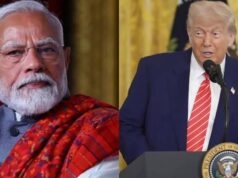Bangladesh explores eastern Indian ports to enhance trade opportunities

By Vijaya Laxmi Tripura
A high-level delegation from Bangladesh, led by S M Mostafa Kamal, Joint Secretary of the Ministry of Shipping, visited Kolkata between July 9 and 12, 2024, to explore new trade opportunities that promise to reduce costs and time for Bangladesh’s export sector. Total Thirteen member delegation, which included representatives from key ministries, private stakeholders, and ports of Bangladesh, aimed to assess the potential of using Eastern Indian ports for their export cargo transhipment needs. This visit marks a significant step in the ongoing efforts to strengthen Indo-Bangladesh bilateral trade relations and improve maritime connectivity between the two nations.
During their stay, the Bangladeshi delegation visited the Syama Prasad Mookerjee Port (SMP) in Kolkata and other major ports on the east coast, including Chennai in Tamil Nadu, and Visakhapatnam and Krishnapatnam ports in Andhra Pradesh. The purpose of these visits was to evaluate the infrastructure, facilities, and operational efficiencies of these ports to determine their suitability for handling Bangladesh’s export cargo. The delegation’s primary focus was on assessing the benefits of transhipping through SMP, Kolkata, which could potentially serve as a strategic hub for reaching third countries.
The delegation’s visit to SMP Kolkata was particularly significant, given the port’s strategic location and robust infrastructure. Meetings were held with top officials from SMP, including Chairman Rathendra Raman, Deputy Chairman (Kolkata) Samrat Rahi, and Deputy Chairman of Haldia Docks A K Mehra. Officials from the Inland Waterways Authority of India also participated in the discussions.
SMP officials highlighted several advantages of using their port for transhipment. These included the availability of empty containers, shorter transit times compared to other major Eastern Indian ports, dedicated vessels for the Bangladesh-India routes, and the potential for optimizing operational costs. A cost comparative analysis presented during the meetings revealed that shipping export cargo from Chittagong to SMP would be more economical than transhipping through other major ports like Colombo. The two-way vessel movement between Bangladesh and India was emphasized as a significant factor in reducing overall transportation costs, creating a mutually beneficial trade proposition for both countries.
SMP Kolkata has ambitious future development plans aimed at enhancing its capabilities and services. These plans include the introduction of direct voyages between SMP Kolkata and China, vessel movement between SMP Kolkata, Chittagong, and Yangon port, the implementation of a Night-Navigation System, and the extension of allied service facilities at SMP Kolkata. These developments are expected to significantly boost the port’s capacity to handle increased cargo volumes and improve its efficiency in serving as a transshipment hub.
The delegation’s visit also focused on exploring opportunities to utilize the existing four Indo-Bangladesh protocol routes via waterways to decongest Bangladesh’s ports. By leveraging these routes, Bangladesh aims to enhance its export logistics, reduce congestion at its ports, and streamline the movement of goods. This initiative aligns with the broader goal of improving maritime connectivity and fostering closer economic ties between the two countries.
The visit was a follow-up to the India-Bangladesh Shipping Secretaries Level Talks (SSLT) held in Dhaka in December 2023. These talks laid the groundwork for the current exploratory visit, underscoring the commitment of both nations to enhance their maritime trade cooperation. The discussions during the SSLT talks emphasized the importance of leveraging each other’s strengths to boost trade and economic growth.
The delegation’s visit concluded on a positive note, with both sides expressing optimism about the potential benefits of enhanced maritime connectivity. The Bangladeshi delegation assured that a detailed report of their findings would be submitted to the Ministry of Shipping, Bangladesh, and communicated to India through diplomatic channels. This report is expected to provide valuable insights and recommendations for further strengthening bilateral trade relations and optimizing the use of Indian ports for Bangladesh’s export needs.
The successful conclusion of the delegation’s visit is expected to pave the way for a new era in Indo-Bangladesh trade relations. By leveraging the strategic location and infrastructure of Indian ports, Bangladesh stands to gain significant advantages in terms of reduced transportation costs, shorter transit times, and improved efficiency in its export logistics. For India, enhanced cooperation with Bangladesh presents an opportunity to strengthen its position as a key maritime hub in the region and boost its own export-import trade.
The exploratory visit by the Bangladeshi delegation marks a significant milestone in efforts to strengthen maritime connectivity and trade cooperation between India and Bangladesh. By exploring new trade avenues and capitalizing on India’s port infrastructure advantages, both nations are poised to unlock substantial economic benefits and foster deeper bilateral trade relations. The positive outlook following the visit underscores the potential for a mutually beneficial trade framework that drives economic growth and prosperity for Bangladesh and India alike.
Blitz




